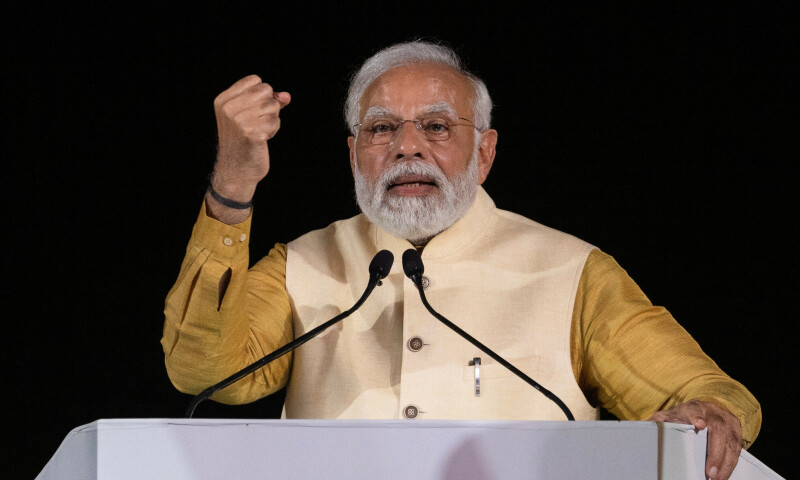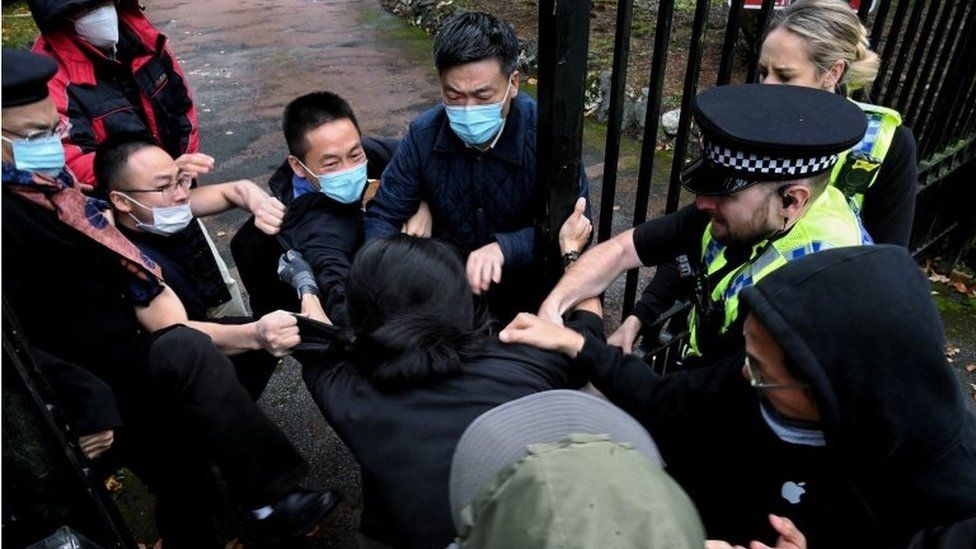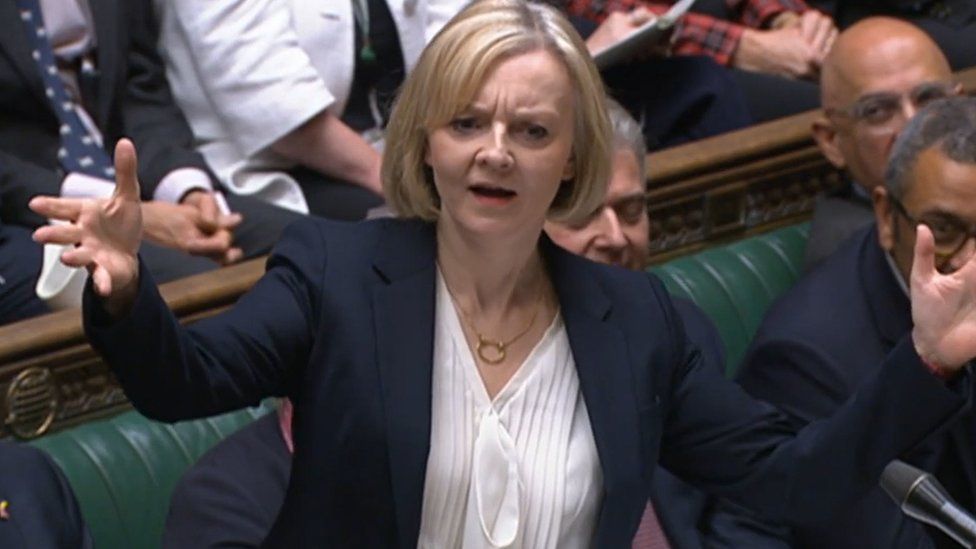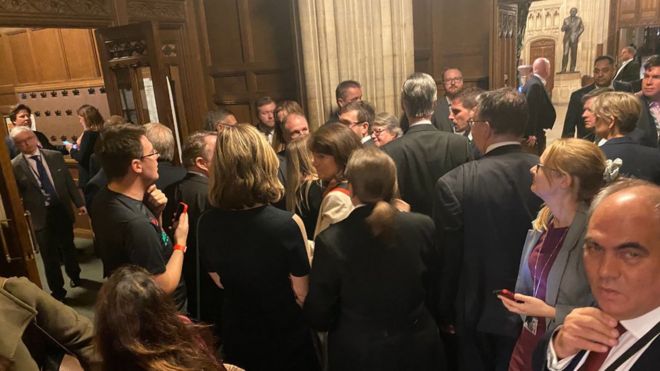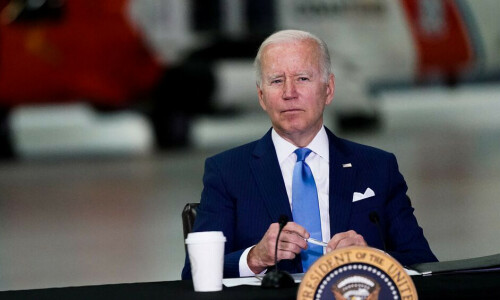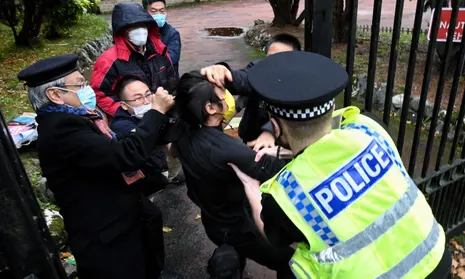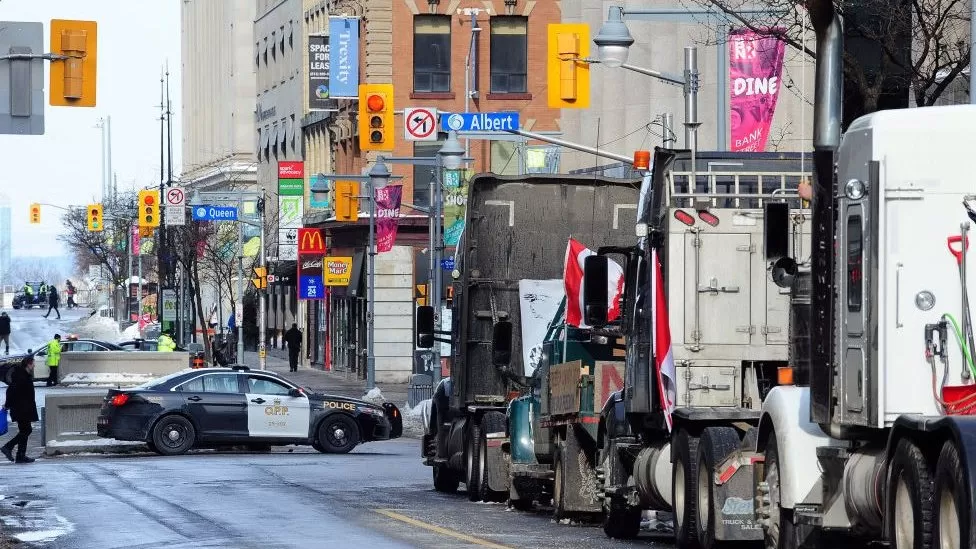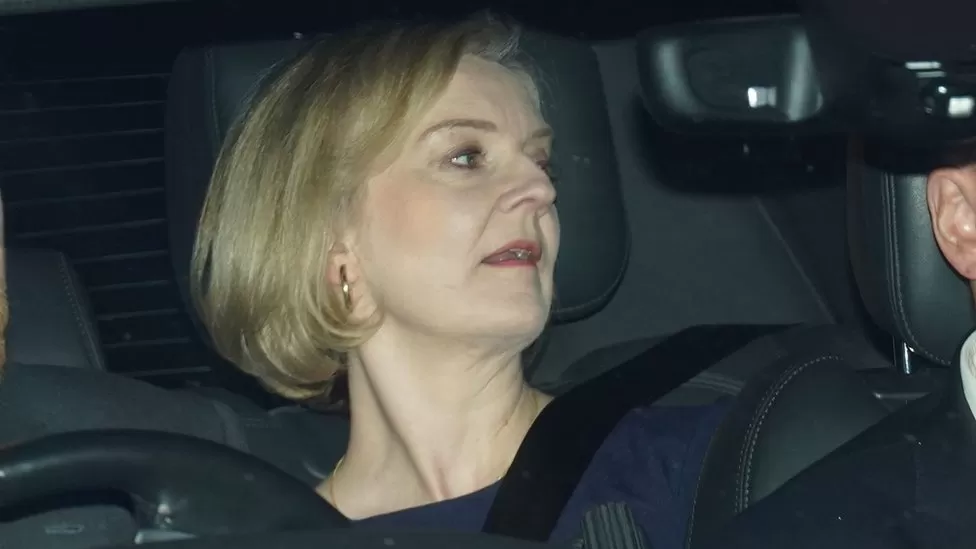The move followed the opening of a defence exhibition in the state and the meeting of defence ministers from the Indian Ocean Rim, mostly from African countries, on Tuesday.
In New Delhi on Wednesday, Mr Modi held forth on terrorism and other crimes as he opened the 90th Interpol General Assembly, the supreme governing body of the world’s largest international police organisation.
Pakistan is represented by the director general of the Federal Investigation Agency (FIA), Mohsin Butt. He was buttonholed by Indian TV reports with familiar questions about the likelihood of extradition of some people India wants and says are in Pakistan. Mr Butt parried them with a finger on the lip.
Says Gujarat base will emerge as effective centre for India’s security
The Interpol conference involves 166 countries and over 700 delegates. It said with unprecedented complexity in the criminal threat landscape, ministers, police chiefs and senior law enforcement officials were discussing how to strengthen the group’s global solutions to support national and regional security.
“There are many harmful globalised threats that the world faces: terrorism, corruption, drug trafficking, poaching and organised crime. When threats are global, the response cannot be just local. The pace of change of these dangers is faster than ever,” Mr Modi said. “Making a safer world is a shared responsibility. When the forces of good cooperate, the forces of bad cannot operate.”
Interpol President Ahmed Naser Al-Raisi said: “As the world’s largest policing organisation, it is the job of Interpol to make sure that all countries are supported.
“Partnership and information sharing help us to better tackle and prevent crimes. Interpol’s databases are the foundation that supports our work, and every country’s contribution is vital.”
The four-day conference will see the launch of the first-ever Interpol Global Crime Trend report, which draws on data and information from across the organisation’s 195 member countries to identify current and emerging threats worldwide.
Among the major crime threats identified in the report, financial and cybercrimes were highlighted as being of particular concern.
To address these threats, resolutions to strengthen the organisation’s collaborative response to disrupting financial crime and corruption and encouraging greater use of Interpol’s International Child Sexual Exploitation database to identify and rescue victims of abuse are on the agenda.
Interpol Secretary General Jürgen Stock said: “Transnational crime is not hampered by pandemics, climate change or economic pressures; indeed, the opposite is true, so the law enforcement response needs to be equally quick to respond.
“The General Assembly provides the global law enforcement community with an opportunity to underline its commitment to working together against the common, global threats that face us all.”
After announcing the new airbase in Gujarat, Mr Modi said: “The times have changed. Earlier, pigeons used to be released, now cheetahs are released.”
He was referring to former premier Jawaharlal Nehru’s practice of releasing pigeons on special days. Mr Modi recently released a bunch of cheetahs brought from Africa.
Speaking after inaugurating the Defence Expo 2022 in Gujarat’s capital Gandhinagar, Mr Modi also said Indian defence forces were becoming self-reliant in producing weaponry and will release a list of 101 more items that cannot be imported.
With this, 411 defence-related goods could only be procured locally, he said, adding: “This will give a major boost to the Indian defence industry.”
The Indian premier said this was an unprecedented defence expo, as only Indian companies are participating in it for the first time.
He said the airbase coming up at Deesa city of Banaskantha district in north Gujarat would “emerge as an effective centre for the security of the country”.


